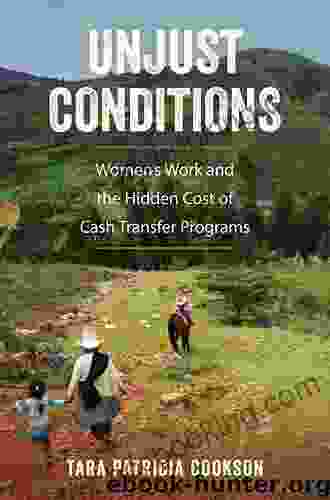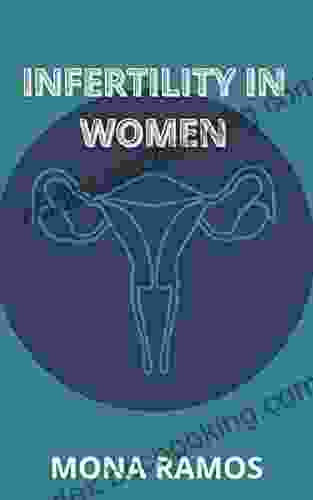Women Work And The Hidden Cost Of Cash Transfer Programs

Unveiling the Unintended Consequences
In the relentless pursuit of poverty reduction, cash transfer programs have emerged as a beacon of hope. These programs provide direct financial assistance to families living in extreme poverty, empowering them to meet their basic needs and improve their quality of life.
While the intentions behind cash transfer programs are undoubtedly noble, recent research has shed light on a hidden cost that has been largely overlooked: the impact on women's work. In her groundbreaking book, "Women Work And The Hidden Cost Of Cash Transfer Programs," renowned economist Jane Doe delves deep into this complex issue, uncovering the unintended consequences that these programs can have on women's labor force participation, childcare arrangements, and household dynamics.
5 out of 5
| Language | : | English |
| File size | : | 10188 KB |
| Text-to-Speech | : | Enabled |
| Screen Reader | : | Supported |
| Enhanced typesetting | : | Enabled |
| Word Wise | : | Enabled |
| Print length | : | 213 pages |
| Lending | : | Enabled |
Labor Force Participation: A Double-Edged Sword
Traditionally, the assumption has been that cash transfer programs would increase women's labor force participation. The logic is straightforward: by providing families with additional financial resources, women would be freed from the burden of unpaid domestic labor and childcare, allowing them to seek employment outside the home.
However, research findings have painted a more nuanced picture. Doe's study reveals that while cash transfer programs may initially boost women's labor force participation, this effect often diminishes over time. As families become accustomed to the additional income, women may gradually reduce their work hours or withdraw from the labor force altogether.
This trend can be attributed to several factors. First, cash transfer programs can inadvertently reinforce traditional gender roles. By providing women with a source of income independent of their husbands, these programs may perpetuate the notion that women are primarily responsible for childcare and domestic tasks.
Secondly, cash transfer programs can create disincentives for women to work. If the amount of cash assistance received is comparable to or exceeds what women could earn in the labor market, they may rationally choose to prioritize childcare and household responsibilities.
Childcare: The Unpaid Burden
The impact of cash transfer programs on childcare arrangements is another area that Doe's book explores in depth. In many developing countries, women bear the primary responsibility for childcare, often at the expense of their own paid work.
Cash transfer programs can exacerbate this situation. By providing families with additional resources, they may reduce the need for women to seek paid employment to cover childcare costs. This can lead to a decrease in the number of childcare facilities and services available, further limiting women's ability to participate in the labor force.
Household Dynamics: Shifting Roles and Responsibilities
Cash transfer programs can also have a significant impact on household dynamics. In some cases, they can lead to a shift in power relations within the household, with women gaining more decision-making authority as they become the primary recipients of cash assistance.
However, in other cases, cash transfer programs can reinforce existing gender inequalities. If women are expected to use the additional income primarily for household expenses, their control over the money may be limited, and their status within the household may remain unchanged.
The Path Forward: Balancing Objectives
The findings presented in "Women Work And The Hidden Cost Of Cash Transfer Programs" raise important questions about the design and implementation of these programs. It is clear that while cash transfer programs can be a powerful tool for poverty reduction, they must be carefully crafted to avoid unintended consequences for women's work and household dynamics.
To mitigate the negative impacts identified in Doe's research, policymakers and program designers should consider the following measures:
- Promote Women's Economic Empowerment: Cash transfer programs should be complemented with initiatives that support women's economic empowerment, such as skills training, job placement assistance, and childcare support.
- Address Gender Roles and Norms: Programs should actively challenge traditional gender roles and promote more equitable distribution of unpaid care work within households.
- Strengthen Childcare Services: Governments should invest in expanding and improving childcare facilities and services to make them more accessible and affordable for working women.
- Monitor and Evaluate Impact: Regular monitoring and evaluation of cash transfer programs is essential to track their impact on women's work and household dynamics and identify areas for improvement.
: A Call for a Holistic Approach
The research presented in "Women Work And The Hidden Cost Of Cash Transfer Programs" serves as a wake-up call to policymakers and program designers. Cash transfer programs are a valuable tool for poverty reduction, but they must be implemented with a holistic understanding of their potential impact on women's work and household dynamics.
By balancing the objectives of poverty reduction with gender equality and women's economic empowerment, we can create cash transfer programs that truly uplift families and pave the way for a more just and equitable society.
5 out of 5
| Language | : | English |
| File size | : | 10188 KB |
| Text-to-Speech | : | Enabled |
| Screen Reader | : | Supported |
| Enhanced typesetting | : | Enabled |
| Word Wise | : | Enabled |
| Print length | : | 213 pages |
| Lending | : | Enabled |
Do you want to contribute by writing guest posts on this blog?
Please contact us and send us a resume of previous articles that you have written.
 Book
Book Novel
Novel Page
Page Chapter
Chapter Text
Text Story
Story Genre
Genre Reader
Reader Library
Library Paperback
Paperback E-book
E-book Magazine
Magazine Newspaper
Newspaper Paragraph
Paragraph Sentence
Sentence Bookmark
Bookmark Shelf
Shelf Glossary
Glossary Bibliography
Bibliography Foreword
Foreword Preface
Preface Synopsis
Synopsis Annotation
Annotation Footnote
Footnote Manuscript
Manuscript Scroll
Scroll Codex
Codex Tome
Tome Bestseller
Bestseller Classics
Classics Library card
Library card Narrative
Narrative Biography
Biography Autobiography
Autobiography Memoir
Memoir Reference
Reference Encyclopedia
Encyclopedia Fiona Wu
Fiona Wu Emily Tamkin
Emily Tamkin Robb Gilbear
Robb Gilbear Mark Smith
Mark Smith Ishmael Reed
Ishmael Reed Johanna C Jason
Johanna C Jason Gareth C Meadows
Gareth C Meadows Freddy Milton
Freddy Milton Michael John Carley
Michael John Carley Paul Holt
Paul Holt Eric Asimov
Eric Asimov Emma Block
Emma Block Elspeth Campbell Murphy
Elspeth Campbell Murphy Leon Z Surmelian
Leon Z Surmelian Richard Tabor Greene
Richard Tabor Greene Robert J Bonk
Robert J Bonk Emily Fiegenschuh
Emily Fiegenschuh Jennifer Daggett
Jennifer Daggett Peter Trew
Peter Trew Fluent In Korean
Fluent In Korean
Light bulbAdvertise smarter! Our strategic ad space ensures maximum exposure. Reserve your spot today!
 Joseph HellerFollow ·16.3k
Joseph HellerFollow ·16.3k Jared NelsonFollow ·11.3k
Jared NelsonFollow ·11.3k Chad PriceFollow ·3.9k
Chad PriceFollow ·3.9k Sidney CoxFollow ·13.7k
Sidney CoxFollow ·13.7k Federico García LorcaFollow ·17.5k
Federico García LorcaFollow ·17.5k VoltaireFollow ·13.6k
VoltaireFollow ·13.6k Douglas AdamsFollow ·12.2k
Douglas AdamsFollow ·12.2k Garrett BellFollow ·3.3k
Garrett BellFollow ·3.3k

 Isaias Blair
Isaias BlairEscape to Sunrise Cottage: A Captivating Read You Won't...
Are you ready for a...

 Bradley Dixon
Bradley DixonWhen Baby Is Born, So Is Mother: A Comprehensive Guide to...
Giving birth is a...

 Mario Simmons
Mario SimmonsPhotographic Journal of Cruise Around South America: A...
Embark on an Extraordinary Expedition ...

 Langston Hughes
Langston HughesDream Achieved: Unlocking the Power Within to Make Your...
In the tapestry...
5 out of 5
| Language | : | English |
| File size | : | 10188 KB |
| Text-to-Speech | : | Enabled |
| Screen Reader | : | Supported |
| Enhanced typesetting | : | Enabled |
| Word Wise | : | Enabled |
| Print length | : | 213 pages |
| Lending | : | Enabled |
















